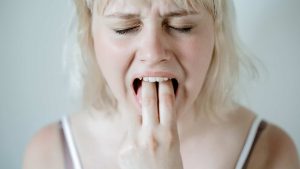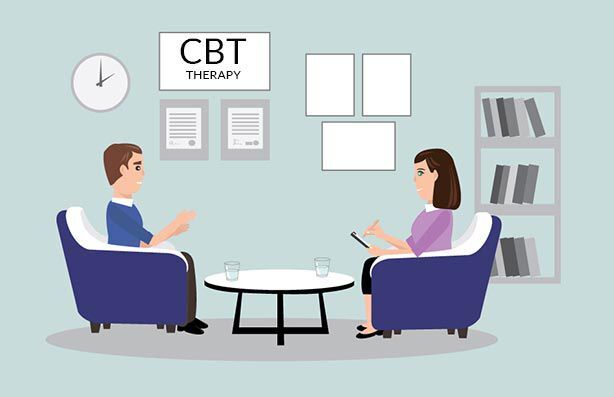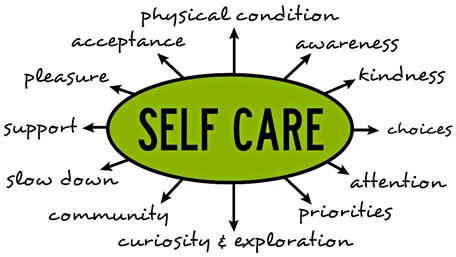Bulimia Test
Bulimia nervosa is a serious eating disorder that can have devastating consequences for those who suffer from it. It is characterized by a cycle of bingeing and purging, which can be very harmful to both the body and mind. If you are worried that you or someone you know may have bulimia nervosa, take this bulimia test to learn more about the symptoms and how to get help.
What is Bulimia Nervosa?

Bulimia nervosa is a serious, life-threatening eating disorder characterized by bingeing and purging. Bingeing occurs when you eat an excessive amount of food in a short period of time. Purging refers to any behavior that gets rid of the food from your body, such as vomiting, using laxatives or diuretics, or excessive exercise.
Bulimia nervosa can have serious physical and emotional consequences. Bingeing and purging can hurt your body. That might make you have too much water in your body, or not enough to drink. You might also have trouble having a bowel movement. And that could lead to heart problems or even death. Bulimia also causes intense shame and guilt, which can lead to depression and other mental health problems.
What are the Signs and Symptoms of Bulimia?

There are several warning signs that you may have bulimia nervosa. If you experience any of these signs, it’s important to talk to a doctor or therapist right away:
- You often eat more than normal in a short period of time (binge) and then feel guilty or ashamed about it
- You vomit, use laxatives, diuretics, or exercise excessively to try to get rid of the food you’ve eaten
- One may have a distorted view of your body weight and shape
- You’re afraid of gaining weight
- You hide your eating habits from others
- Your periods are irregular or you stop having periods altogether
- You feel tired and drained, have trouble concentrating, or experience mood swings
How is Bulimia Diagnosed?
There isn’t a single test that can diagnose bulimia nervosa. A doctor or therapist will usually ask about your eating habits and how you’re feeling emotionally. They may also do a physical exam to check for problems related to bulimia, such as dehydration or damage to your teeth.
Sample Questions In A Bulimia Test
- Do you feel like you need to purge after eating?
- Do you often eat more than you should, or in a shorter period of time than normal?
- Have you ever felt guilty or ashamed after eating?
- Do you regularly use laxatives, diuretics, or enemas?
- Do you frequently fast or diet?
- Have you ever felt like your eating habits are out of control?
If you answered yes to any of these questions, it is possible that you have bulimia. Please seek professional help if you believe that you may be struggling with this disorder. Bulimia can be dangerous and deadly if left untreated. There is hope, though, and with the right treatment, you can overcome bulimia and regain your health and happiness.
Benefits Of A Bulimia Test

If you are not sure if you have bulimia, taking a test can help you understand the problem. It is difficult to admit that there may be a problem, but it is important to do what is best for your health. A bulimia test can provide information about how severe your disorder is and can guide you on the best
If you are close to someone who is struggling with bulimia, taking a test can be helpful. It can be hard to know how to help someone who has bulimia. By understanding it better, you will be able to provide more effective help.
People who work with people with eating disorders should take a bulimia test. This will help you understand the symptoms and come up with an appropriate treatment plan.
If you are thinking about getting help for bulimia, taking a test is a good way to start. It can be difficult to know where to start, but by understanding your disorder better, you will be able to make informed decisions about treatment.
Goals Of Bulimia Test
The goal of a bulimia test is to help people understand if they have bulimia and, if so, how severe it is. A test can also provide information about the best treatment for someone with bulimia. It is important to remember that there is hope and that with the right treatment, you can overcome this disorder. If you are not sure if you have bulimia, please take a test. It can be the first step on your road to recovery.
Scoring Of Bulimia Test
The scoring of a bulimia test can help you understand how severe your disorder is. Higher scores indicate a more severe disorder. The following are the possible scores for the Bulimia Test:
- 0-15 points: You do not have bulimia
- 16-30 points: You have mild bulimia
- 31-45 points: You have moderate bulimia
- 46-60 points: You have severe bulimia
- 61 or more points: You have very severe bulimia.
Treatment Options For Bulimia

If you have been diagnosed with bulimia, there are a number of treatment options available to you. The most important thing is to seek professional help. There is hope, and with the right treatment, you can overcome bulimia. Some of the possible treatments for bulimia include:
- Individual therapy: This involves meeting one-on-one with a therapist who will help you understand and deal with the underlying causes of your bulimia.
- Group therapy: This involves meeting with other people who are struggling with bulimia. It can be helpful to share your experiences and learn from others.
- Family therapy: This involves meeting with your family to discuss how bulimia has affected them. It can be helpful for your family to understand bulimia and how it can help you recover.
- Cognitive-behavioral therapy: This type of therapy helps you change the thoughts and behaviors that contribute to your bulimia.
- Medication: There are a number of medications available that may be helpful in treating bulimia.
- Nutrition counseling: This involves meeting with a nutritionist who will help you develop a healthy eating plan.
- Eating disorder rehabilitation center: If you need more intensive treatment, an eating disorder rehabilitation center may be the best option for you. There, you will receive around-the-clock care and support.
There are many different treatment options available for bulimia. The most important thing is to seek professional help. With the right treatment, you can overcome this disorder and regain your health.
Self Care Tips

If you are struggling with bulimia, it is important to take care of yourself. Here are some self-care tips that can help:
- Get enough sleep: It is important to get a good night’s sleep so you can recharge your batteries.
- Eat healthy foods: Eating nutritious foods will help your body heal and recover from bulimia.
- Exercise: Exercise can help you feel better both physically and mentally.
- Avoid triggers: Triggers are things that can cause you to binge or purge. Try to avoid them as much as possible.
- Talk to someone: Talk to someone who understands what you’re going through. It can be helpful to talk to someone who has been through treatment for bulimia.
- Take care of yourself: Take some time for yourself every day to relax and recharge.
These self-care tips can help you manage your bulimia and improve your overall health.
Conclusion
Bulimia is a serious mental illness that can have severe consequences for your physical and emotional health. If you are worried that you or someone you know may have bulimia, it is important to get help. There are many resources available to people who have bulimia, including counseling, support groups, and medication. With the right treatment and support, it is possible to overcome bulimia and live a healthy, happy life. Have you or someone you know struggled with bulimia? What resources did you find helpful? Let us know in the comments below.
A Word From Therapy Mantra
Your mental health — Your psychological, emotional, and social well-being — has an impact on every aspect of your life. Positive mental health essentially allows you to effectively deal with life’s everyday challenges.
At TherapyMantra, we have a team of therapists who provide affordable online therapy to assist you with issues such as depression, anxiety, stress, workplace Issues, addiction, relationship, OCD, LGBTQ, and PTSD. You can book a free therapy or download our free Android or iOS app.


